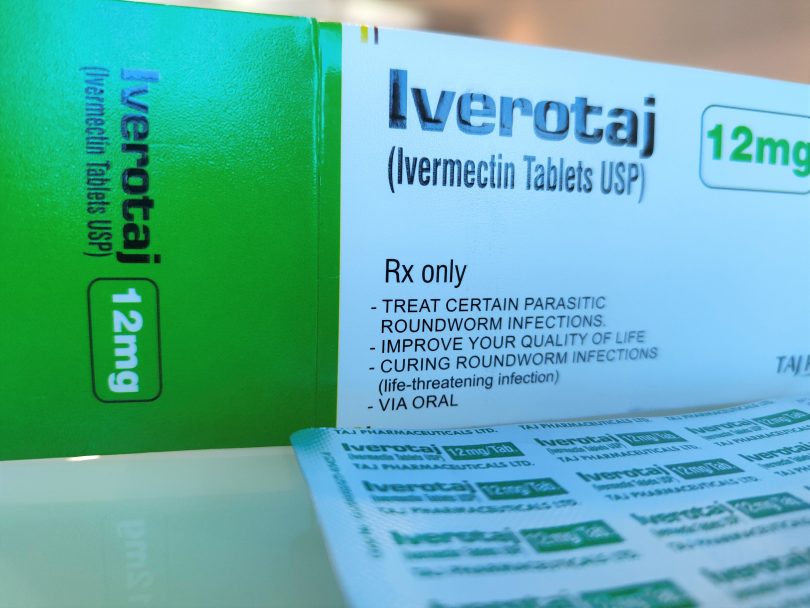
Ivermectin is sometimes prescribed by doctors to treat parasites in humans, but the drug is more commonly used by veterinarians in farm animals. Photo: Wikimedia.
Reports that ivermectin – a veterinary drug commonly used to treat parasites in animals – is being used by some Australians as a human treatment for COVID-19 has vets worried that people are putting their lives at risk.
The Australian Veterinary Association (AVA) says that while a version of ivermectin is sometimes prescribed by doctors to treat parasites in humans, the drug is more commonly used by veterinarians for the prevention and treatment of parasites in farm animals such as sheep, cattle and horses.
The AVA says preparations for animals are very different from those approved for human use, being concentrated for use in species that weigh significantly more than humans.
Taking ivermectin could make a person seriously ill and potentially be life threatening, says the AVA.
Ivermectin has not been approved in Australia to prevent or treat COVID-19. A review of the drug by independent medical reviewer the Cochrane Library, in July 2021, found there is no evidence to support the use of the drug for treating or preventing COVID-19 infection.
Despite this, a wave of online misinformation touting ivermectin as a ‘miracle cure’ for COVID-19 has resulted in the increased importation and prescription of the drug for humans, according to the Therapeutic Goods Administration (TGA) which has clearly stated that ivermectin is not approved to treat COVID-19 in Australia.
A large clinical trial that seemed to show spectacularly positive results for ivermectin has now been withdrawn, but a new ivermectin trial is just starting at Oxford University that will compare a three-day treatment of the drug in people within the first 14 days of COVID-19 symptoms, or having a positive test, to those having usual care.
The trial is expected to report its results in the coming months.
Charles Sturt University Adjunct Associate Professor Ken Jacobs, who is also a vet and farmer, said he is aware of papers in which ivermectin in a test tube had been shown to be effective against COVID-19, but it has never been proven to be safe to use on humans for that purpose.
“It’s dangerous and there have already been cases where people have got quite ill and shown toxicity,” he said.
Associate Professor Jacobs said ivermectin is mainly a treatment for worms, not viruses, and the dose rates are not the same across species.
Toxicity studies are yet to be done and the toxicity rate for humans is not known, he said.
“As a society, we need to be very careful to use treatments that have got well established effectiveness, and vaccines certainly have that effectiveness,” said Associate Professor Jacobs.
What worries him is that many people do not believe that COVID-19 is a dangerous disease, and distrust the science.
“If you don’t trust the science and you start to use what are anecdotal opinions, you end up with really poor outcomes,” said Associate Professor Jacobs.
“You need to get your science from scientific sources, not Facebook.”
Associate Professor Jacobs said people looking for alternative treatments to vaccines, such as ivermectin, are miscalculating the risk involved in rejecting vaccination.
He said COVID-19 would impact the unvaccinated more severely and could have long-term effects such as the chronic fatigue associated with so-called ‘long COVID-19’.
“People need to think about it in the context of their long-term futures,” said Associate Professor Jacobs.
He said it is important to inform people, not condemn them, because all that does is alienate them.







